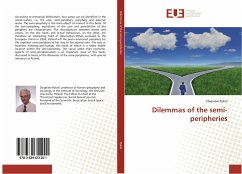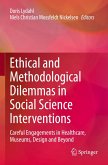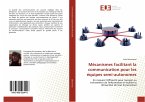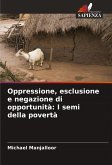According to Immanuel Wallerstein, four zones can be identified in the world-system, i.e. the core, semi-periphery, periphery and external arena. The semi-periphery is the main object of interest in this book. Of the semi-periphery, aspirations of the core and possibilities of the periphery are characteristic. The discrepancies between norms and values, on the one hand, and actual behaviours, on the other, are therefore an interesting field of observation. When accessed to the European Union in 2004, Poland left the post-communist periphery for the capitalist semi-periphery in her way to the aspired core. The way is, however, winding and bumpy, the result of which is a rather stable location within the semi-periphery. The social rather than economic aspects of semi-peripherisation is an important issue of this book, discussed in terms of the dilemmas of the semi-peripheries, with special reference to Poland.
Bitte wählen Sie Ihr Anliegen aus.
Rechnungen
Retourenschein anfordern
Bestellstatus
Storno








